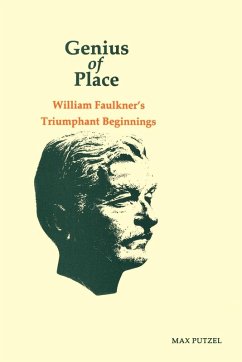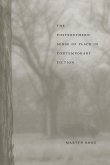Until recently most discussions of William Faulkner have centered exclusively on his novels. Yet no chronicle of Faulkner's Growth as a literary artist, perhaps America's foremost in this century, can afford to overlook the years he spent struggling to establish himself as a writer of short stories. To trace in detail Faulkner's personal and artistic growth during the prolific years 1925-1931, when he was approaching artistic ripeness and earning belated recognition, has hitherto been impossible. There seemed to be no means of dating the innumerable drafts, the false starts and fumbling revisions, among the thousands of sheets left behind when he died in 1962. Max Putzel's critical study of these crucial formative years fills this gap--assigning dates to the sketches and drafts of stories and relating them both to Faulkner's jealously guarded private life and the several critical histories of the novels that have recently appeared. Putzel maintains there is a necessary, a "symbiotic" relation between the novels and the stories. He also finds that the short story form Faulkner found so hard to master liberated a lyrical power that had been stifled during his confused dilettante period as a poet in a provincial southern town. Yet his turbulent, ambivalent feelings about that town and its inhabitants were essential to his development, however slowly and reluctantly he surrendered to their benign influence--the genius of his homeplace. Faulkner also was sensitive to the monumental revolutionary changes, even the trivial fads and foibles, of his own time--the changes that swept the world outside of Oxford, Mississippi, after the Great War he so regretted having missed. Faulkner's maturing vision of man, history, and class and caste relations was affected by Einstein's theory of relativity, Freud's probing into the hidden wellsprings of human behavior, Eliot's borrowings from anthropology, Joyce's new rhetoric, Diaghilev's eclecticism, Picasso's ventures in cubism and classicism---not to mention the Treaty of Versailles, Prohibition, jazz, free love, free spending, gang violence, false prosperity, the crash, and the depression. These factors also helped shape a style capable of evoking passion and tenderness, anger and laughter, and every intermediate shade of feeling---a style demanding the creative effort of readers. Genius of Place takes all this into account while seeking to determine what is likely to endure and reward future readers of works like "Carcassonne" and The Sound and the Fury, the Snopes trilogy and As I Lay Dying, "Dry September" and Sanctuary.
Hinweis: Dieser Artikel kann nur an eine deutsche Lieferadresse ausgeliefert werden.
Hinweis: Dieser Artikel kann nur an eine deutsche Lieferadresse ausgeliefert werden.








